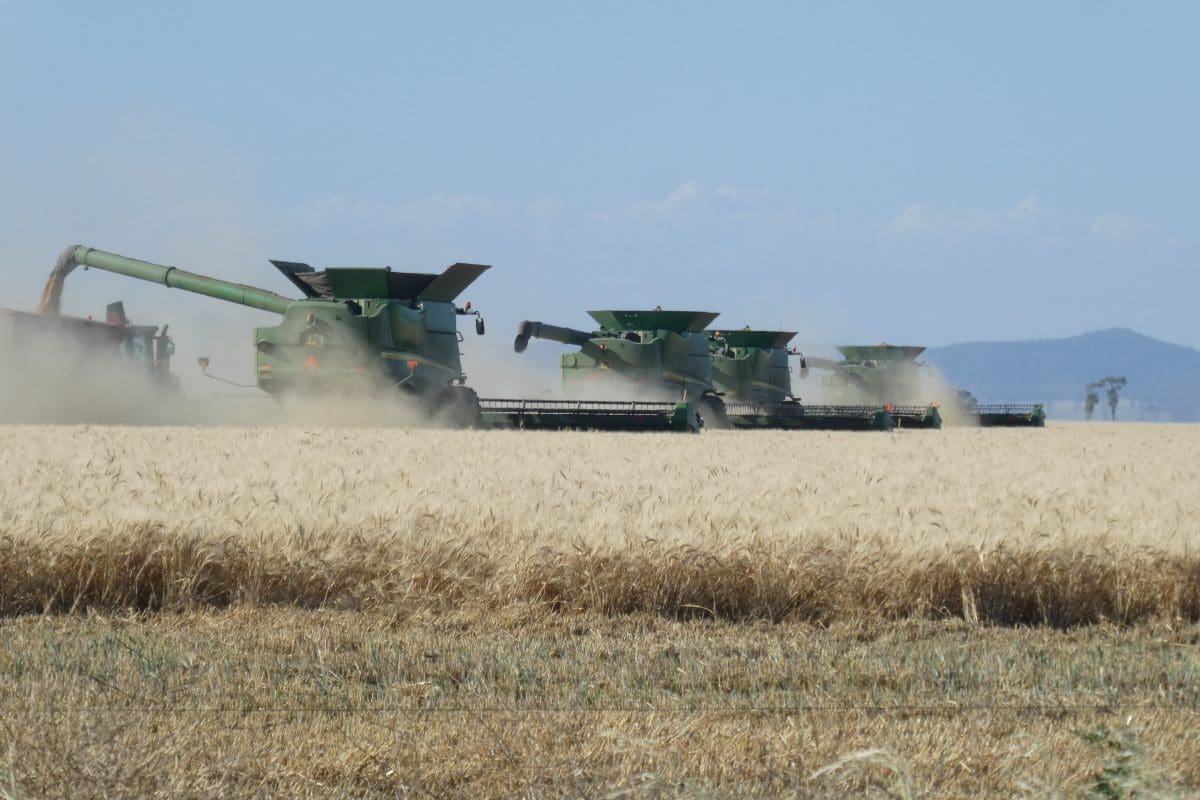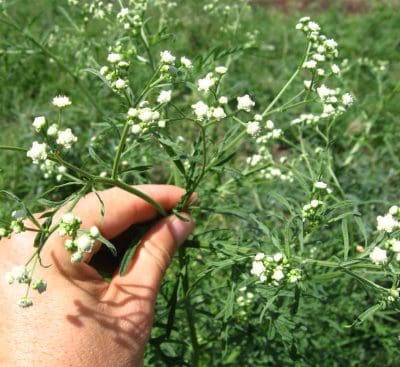
People bringing harvesting equipment into NSW from Queensland are required by law to ensure equipment is free of parthenium weed. Photo: NSW DPI
THE New South Wales Department of Primary Industries (DPI) has alerted those bringing harvesting gear south from Queensland that they are required by law to ensure equipment and machinery is free of the devastating parthenium weed and its seeds.
NSW DPI state priority weeds coordinator, Nicola Dixon, said while headers were high-risk, all machinery and vehicles which have been in parthenium weed areas of Queensland should be properly cleaned before entering NSW.
“The person in charge of a header, including the comb and comb trailer, must submit a completed Record of Movement form to an authorised NSW DPI officer at or near the NSW and Queensland border,” Ms Dixon said.
The form includes a declaration that the header and comb have been cleaned in accordance with Schedule 1 of the Biosecurity Order (Permitted Activities) 2019.
“Operators of all machinery, not just harvesters, have a legal duty to prevent their machines from spreading parthenium weed into NSW, which is covered by the General Biosecurity Duty under the NSW Biosecurity Act 2015.”

Parthenium weed flowers. Photo: Queensland Government
Machinery must be cleaned to remove all plant material, dust, soil and accumulated grease or be treated with a seed sterilant.
The list of machinery includes: harvest field bins; augers and any grain movers; trucks and low loaders carrying a header; harvest support and escort vehicles; mineral exploration drill rigs, and the vehicle transporting the rigs.
People in charge of harvesting equipment should contact an authorised NSW DPI officer prior to arrival at the NSW border crossing site to minimise delays.
All offices require 48 hours’ notice of intention to present machinery for inspection, which must occur in daylight hours.
Parthenium is the greatest weed threat to NSW.
Contact with the plant or pollen can cause serious allergic reactions in people.
It is dangerous to grazing animals, hosts crop viruses, prevents desirable plants from establishing and reduces crop and land values.
Source: NSW DPI

HAVE YOUR SAY